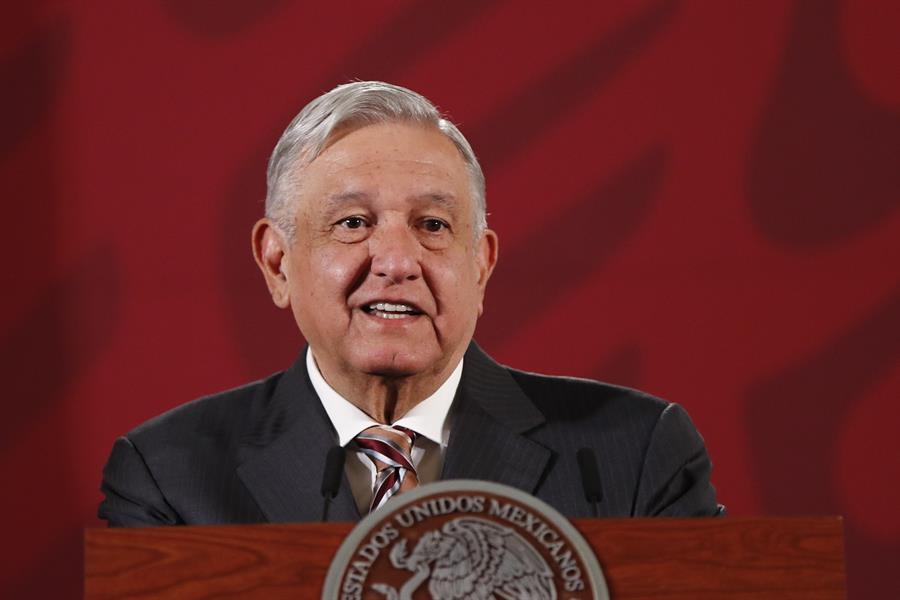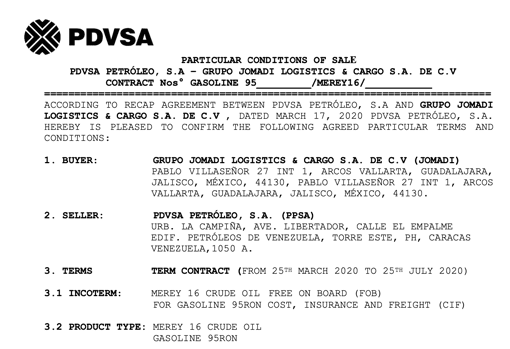
Spanish – The fuel shortage in Venezuela has become a complete catastrophe for the Castro-Chavista regime. So much so that the Nicolás Maduro dictatorship is forced to seek any kind of deal it can fix to get gasoline no matter what price it has to pay. All this while it must look for ways to avoid sanctions, a task which, of course, is not at all easy.
For example, the Spanish newspaper ABC published the contract between the practically unknown company Jomadi with the state-owned oil company Petróleos de Venezuela (PDVSA). According to the agreement, Jomadi would send 95 octane gasoline in exchange for five million barrels of oil at more flexible and accessible prices. The contract, which was signed on March 17, does not even stipulate the quantity of gasoline that the Mexican company will send to the regime.
The contract obtained by ABC reveals that the company would receive the barrels in Turkish ports between March and July. This would be a clear violation of U.S. sanctions imposed to stifle and put more pressure on the Maduro regime. The objective of the sanctions is to end illicit trade agreements, weaken the regime’s finances, and curb the looting of the Venezuelan oil industry.

The Trump administration has been mounting pressure on the Venezuelan regime since the first wave of sanctions. A clear example is that of sanctions of subsidiaries of the Russian company Rosneft because it supports the tyranny.
According to ABC, the “U.S. government has put pressure on the last international energy companies that were still exchanging refined fuel for Venezuelan crude oil so that they stop doing so.”
In fact, the Russian company Rosneft supposedly left the Venezuelan oil market. But, in reality, it was a move to evasively maneuver sanctions. This was done through the acquisition of Rosneft shares by the Russian government.
#ÚltimaHora | La petrolera rusa #Rosneft termina todas sus operaciones con la dictadura de Nicolás Maduro (Más info en breve) #28Mar pic.twitter.com/zKTIKwjfHu
— PanAm Post Español (@PanAmPost_es) March 28, 2020
Other companies that have been warned by the U.S. government to stop marketing fuel and cut off supplies to the Maduro regime include Spain’s Repsol, Italy’s Eni, and the Indian company Reliance.
The void created by the departure of these companies had to be filled. And what better for the Venezuelan regime than a company with hardly any international operations detected in the oil industry? The Mexican company Grupo Jomadi Logistics & Cargo S.A. de C.V., was founded in 2012 and is headed by José Refugio Ruiz. The official headquarters are located in Guadalajara, Mexico.
“In 2018, it declared having imported at least one billion liters of jet fuel, aviation fuel distilled from the crude oil refining process, and 18 million gasoline of different octane numbers. Between 2017 and 2018, he declared having imported nine million liters of diesel, according to Mexican official records,” reads the article on some of the Jomadi businesses.
Maduro’s regime has to look for these structures to maintain the productivity of murky businesses since it cannot carry out the process of refining crude oil in the country. And Chavismo has itself shut down and destroyed entire refineries, and sanctions prevent them from importing the materials needed for the process. Thus, the tyranny is facing serious fuel shortages that affect the whole country. It is because of their incapability and the constant plundering of the oil industry, not the sanctions as they would have us believe.
The data on the lack of productivity is conclusive: in Venezuela, the tyranny has the tools required to refine 1.3 million barrels of oil per day, but it barely manages to refine about 100,000 per day.
The big question is, where does Jomadi’s gasoline come from?
ABC reports that some private oil sector sources in the U.S. pointed out that the big question is “where Jomadi obtains 95 octane gasoline that it agrees to unload in regime tankers in Venezuelan waters?” The sources indicate that it is not a minor shipment with the stipulated amount: five million barrels of crude oil at low costs. “Such large quantities must be declared to the Mexican government, which must have proof of their provenance,” these sources add.
This is not the first time that ABC has revealed a scheme between Mexican companies and the Maduro regime to circumvent sanctions. In fact, a few days ago, it published that the Trump administration is investigating a connection that the companies Libre Abordo and Schlager have with PDVSA. According to ABC, these companies are reportedly buying 15 million tons of PDVSA’s crude oil in exchange for 210,000 tons of corn and 1,000 tanks of potable water. The strangest thing about all this? These two companies, like Jomadi, have hardly any record and experience in the oil industry.
The big question that arises is whether the López Obrador government will collaborate with the U.S. Department of Justice to resolve all these murky cases that PDVSA handles with Mexican companies, or will it turn a blind eye?
 Versión Español
Versión Español













